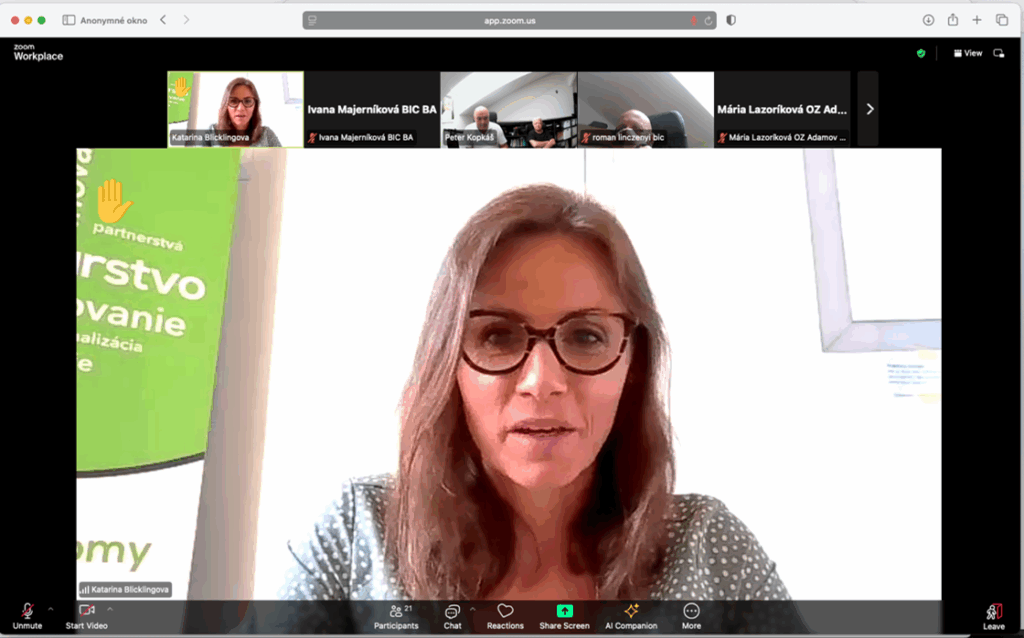Bratislava, 25 June 2025 – How can the green transition benefit everyone, including those often left behind? This was the central question guiding BIC Bratislava’s final BIOLOC event, an online workshop focused on “Opportunities for engaging marginalised groups in the bioeconomy.”
Gathering 23 participants from public administration, businesses, NGOs, and academia, the event created space for a frank and forward-looking conversation about making the circular bioeconomy both innovative and inclusive.
Stories that Inspire Change
The day opened with presentations on BIOLOC’s results and practical success stories, showing how circular solutions are already taking root across Europe.
One highlight was the Good Shepherd initiative, a social enterprise model that combines sustainability with social impact. Participants saw how this approach could be scaled across Slovakia, proving that bioeconomy projects can create jobs, empower disadvantaged groups, and strengthen local communities.
Another showcase was INOVATO Innovation Hub, which presented new opportunities to connect businesses, policymakers, and social actors in developing inclusive green strategies.
Honest Conversations
While there was excitement about the possibilities, the discussions didn’t shy away from challenges. Engaging vulnerable groups is complex, and participants agreed that real progress will require support at the government level. Still, there was a strong sense of momentum: local actors are ready to collaborate and bring good practices to life.
The interactive exchanges underscored one point repeatedly: inclusion isn’t optional — it’s essential. Without it, the bioeconomy risks leaving people behind. With it, it becomes a powerful driver of both social and environmental resilience.
Looking Ahead
The event closed with a practical step: BIOLOC’s Catalogue of Good Practices will now be available through the INOVATO platform, the Bioeconomy cluster, and other networks. BIC Bratislava committed to helping stakeholders connect with project partners and explore real-world applications of these solutions.
Participants left with enthusiasm for future collaborations and a clearer sense of how Slovakia can weave social innovation into its green transition.
As one organizer summed up: “We have the technologies, we have the ideas. Now we must make sure the benefits reach everyone.”




